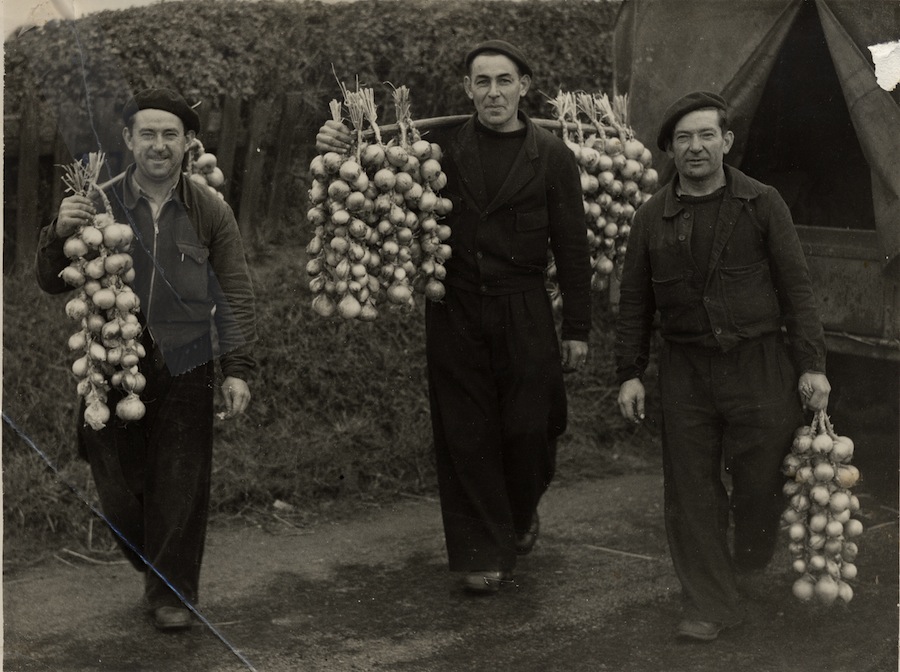à partir du XIXe siècle, ils partaient chaque année, en août, de l'autre côté de la Manche pour vendre leurs oignons.
Le colportage de légumes a commencé au départ de Roscoff par voie de terre vers l'ouest de la France à la fin du XVIIIe siècle au cours de la crise économique qui a précédé la Révolution.
Un demi siècle plus tard, en 1828, un cultivateur roscovite, Henri Ollivier, affrète une gabarre, la charge d'oignons et avec trois compagnons se dirige vers l'Angleterre.
Tel fut l'initiateur et le fondateur du commerce d'oignons en Grande-Bretagne.
Là-bas, les vendeurs furent appelés en anglais Johnnies (« les petits Jean ») ou Johnnies Onions,
et en gallois Sioni Wynwns.
Le terme est passé en breton : ar Johnniged.
Les vendeurs d'oignons faisaient du porte-à-porte portant leurs marchandises tressées sur leurs épaules ou sur leur vélo, en criant : "Onions, do you want any onions ? "
Souvent les clients gardaient d'une année sur l'autre « leur » Johnny.
The Johnnies were pink onions merchants.
from the nineteenth century, they were leaving every year in August, on the other side of the Channel to sell their onions.
Peddling vegetables started from Roscoff by land to the west of France in the late eighteenth century during the economic crisis that preceded the Revolution.
Half a century later, in 1828, a roscovite farmer , Henri Ollivier, chartering a barge, the load of onions and three companions headed to England.
Such was the initiator and founder of pink onion trade in Britain.
There, vendors were called Johnnies in English ("little Jean") or Johnnies Onions, and Welsh Sioni Wynwns.
The term passed into Breton: ar Johnniged.
Onion sellers were door-to-door carrying their wares on their backs or braided on their bikes, shouting:
"Onions, onions Any do you want?"
Often customers kept from one year to another "their" Johnny.
L'émigration saisonnière augmenta d'année en année. D'un millier autour de la Grande Guerre,
leur effectif atteint 1 400 en 1929, année de leur maximum.
On trouve des Johnnies à Roscoff et aux environs : Santec, Saint-Pol, Plougoulm, Sibiril, Cléder…
(extraits de wikipedia)
Seasonal migration increased year by year.
From a thousand around the Great War, their number reached 1,400 in 1929, the year of their maximum.
Johnnies are found in and around Roscoff : Santec, St. Pol, Plougoulm, Sibiril Cléder ...
(extracts from wikipedia)


Un roman de Yvon Mauffret évoque la vie des jeunes Johnnies :
An Yvon Mauffret's novel evokes the lives of youth Johnnies :
